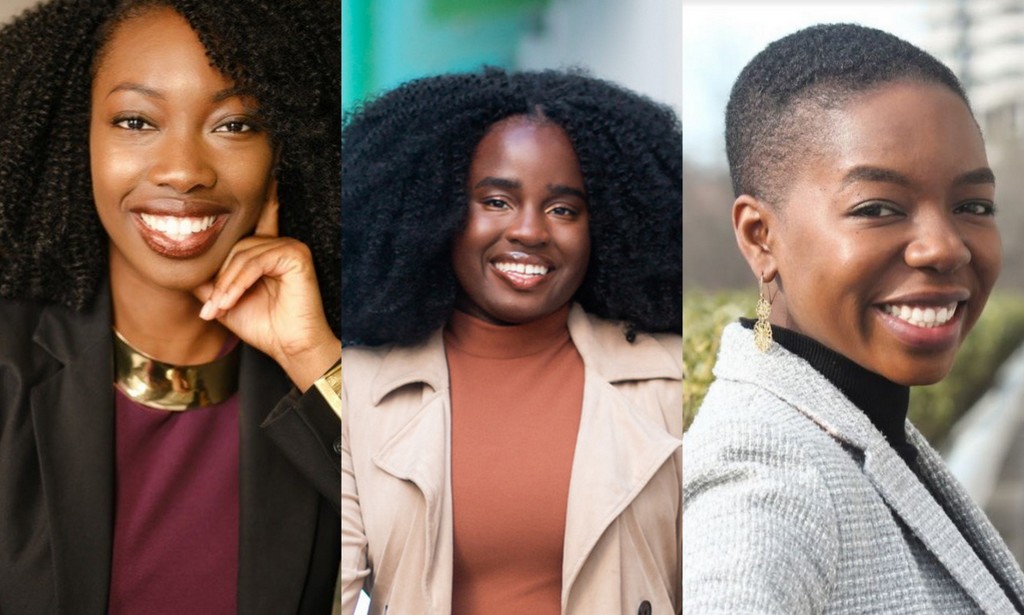by Fanta Traore, Anna Gifty Opoku-Agyeman, and Sandile Hlatshwayo
AFRO – On January 21, 2021, history was made. Senator Kamala Harris was sworn in as the first Black, Asian-American, and woman vice president ever—identities she proudly and adeptly holds collectively.
Shortly following the inauguration, Janelle Jones, former Managing Director of Groundwork Collaborative, announced that she would be appointed as Chief Economist at the Department of Labor, making her the first African American woman to hold the post. And Stacey Abrams, who played a major role in Biden’s victory, is an alumna of Spelman College, where she majored in interdisciplinary studies combining her interests in political science, sociology, and economics. What Harris, Jones, and Abrams have in common is that they were educated by economics departments at historically black colleges and universities (HBCUs).
As noted by the Department of Education, HBCUs were established to serve the educational needs of Black Americans. Prior to the time of their establishment, and for many years afterwards, Blacks were generally denied admission to traditionally white institutions. As a result, HBCUs became the principal means for providing postsecondary education to Black Americans. Howard University, affectionately known as the Mecca of Black Excellence, is known for producing many of the nation’s first powerful figures who advanced society at large, including the first African American to be elected to the Senate, the first African American mayor of New York City, the first female Mayor of Atlanta, Georgia, the first Supreme Court Justice Thurgood Marshall, and the first Black woman to cast a vote in a national election. HBCUs continue to produce today’s powerful figures: Keisha Lance Bottoms, the Mayor of Georgia, is a graduate of FAMU; the only Black woman CEO of a Fortune 500 company, Rosalind Brewer, is an alumna of Spelman College; the first Black person and woman to be elected attorney general of New York went to Howard University School of Law.
If we look in particular at Harris’s chosen major, economics, we see that recent years have brought the field of study a reckoning with sexual harassment, gender discrimination, and anti-Black racism, mirroring broader public discourse. The absence of Black and brown women in economics is stark across spaces economists inhabit the most power: public policy, financial services, technology, and academia.
HBCUs counter this status quo. To date, Howard is the number one producer of economics undergraduate majors and Black PhD economists, and notably the only HBCU which awards PhDs in economics. And Spelman College, despite its small enrollment of around two thousand students, is the nation’s leading producer of Black women with PhDs in STEM fields.
Last year, Dr. Lisa D. Cook, alumnae of Spelman college and current Associate Professor of Economics at Michigan State University, along with Anna Gifty, CEO of the Sadie Collective co-wrote an op-ed, highlighting how the absence of Black women in economics harms everyone. The article mentioned how less than 0.5% of all economics doctorates in the United States are earned by Black women and that the lag of potential Black women economists begins as early as high school.
Black women missing from economics is a unique problem, one that has tangible effects for our national and global economies as well as our political elections. Economic crises tend to harm women of color more than other groups. If our nation’s central bankers had more trained Black women at the table offering their perspective and expertise on the economy, policymakers could potentially identify warning signs earlier and enact concrete action to address potential economic issues sooner. This demonstrates why economic ideologies championed by economists of color are critical to how we move forward in addressing economic empowerment for the most marginalized communities in America. Economist Janelle Jones’ concept of “Black Woman Best” says that everyone benefits from economic policies that center Black women.
In 2018, two of us, Fanta and Anna, co-founded the Sadie Collective, named in honor of Dr. Sadie Alexander. Our organization is the first of its kind to uniquely address the pipeline and pathway problem for Black women in economics and related fields. With our team, made up of entirely young Black women, we are helping to foster a resource-rich community that empowers and equips women who look like us to become women who lead like Kamala Harris and Stacey Adams. As Harris and Adams have demonstrated with their leadership, we believe that Black women in these fields are uniquely equipped to answer questions that lie at the intersection of economics, policy, finance, and data science at the highest levels of leadership globally.
Despite the value that Black women in economics hold, barriers remain. That’s where HBCUs come in. Two of us – Fanta and Sandile – are HBCU alumna. We know, firsthand, the power of learning within an economics department that looks like you. HBCUs foster a sense of community and togetherness that ensures young Black women not only have the academic support they need, but the personal, community-driven support required to persist in fields where underrepresentation is the norm.
Through one historic election, we saw how Black women majoring in economics and related fields at HBCUs changed the course of history because they were empowered and equipped with an understanding of our world that informed how they chose to meet the current moment. Because of their identities, associated life experiences as Black women, and HBCU educations, Harris, Abrams, Jones, and countless others are ushering in all-important insights into criminal justice reform, voter disenfranchisement, immigration policy, educational reform, health care coverage and affordability, and more.
The post Op-ed: HBCUs will shape the future of politics appeared first on Afro.
Fanta Traore, Anna Gifty Opoku-Agyeman, and Sandile Hlatshwayo (Courtesy Photo)
This article originally appeared in The Afro.
